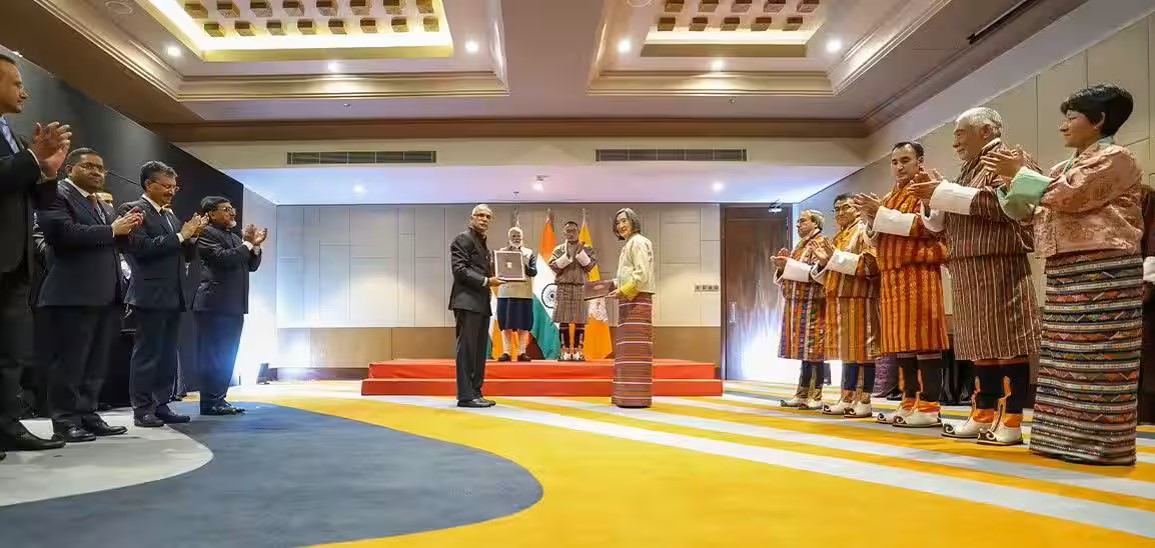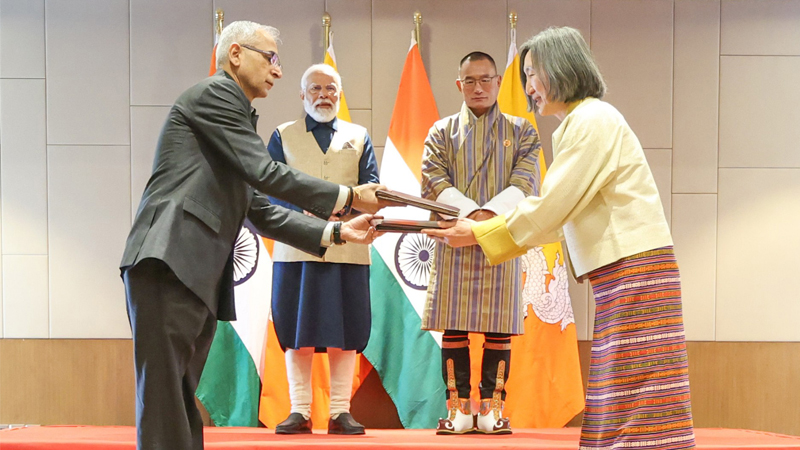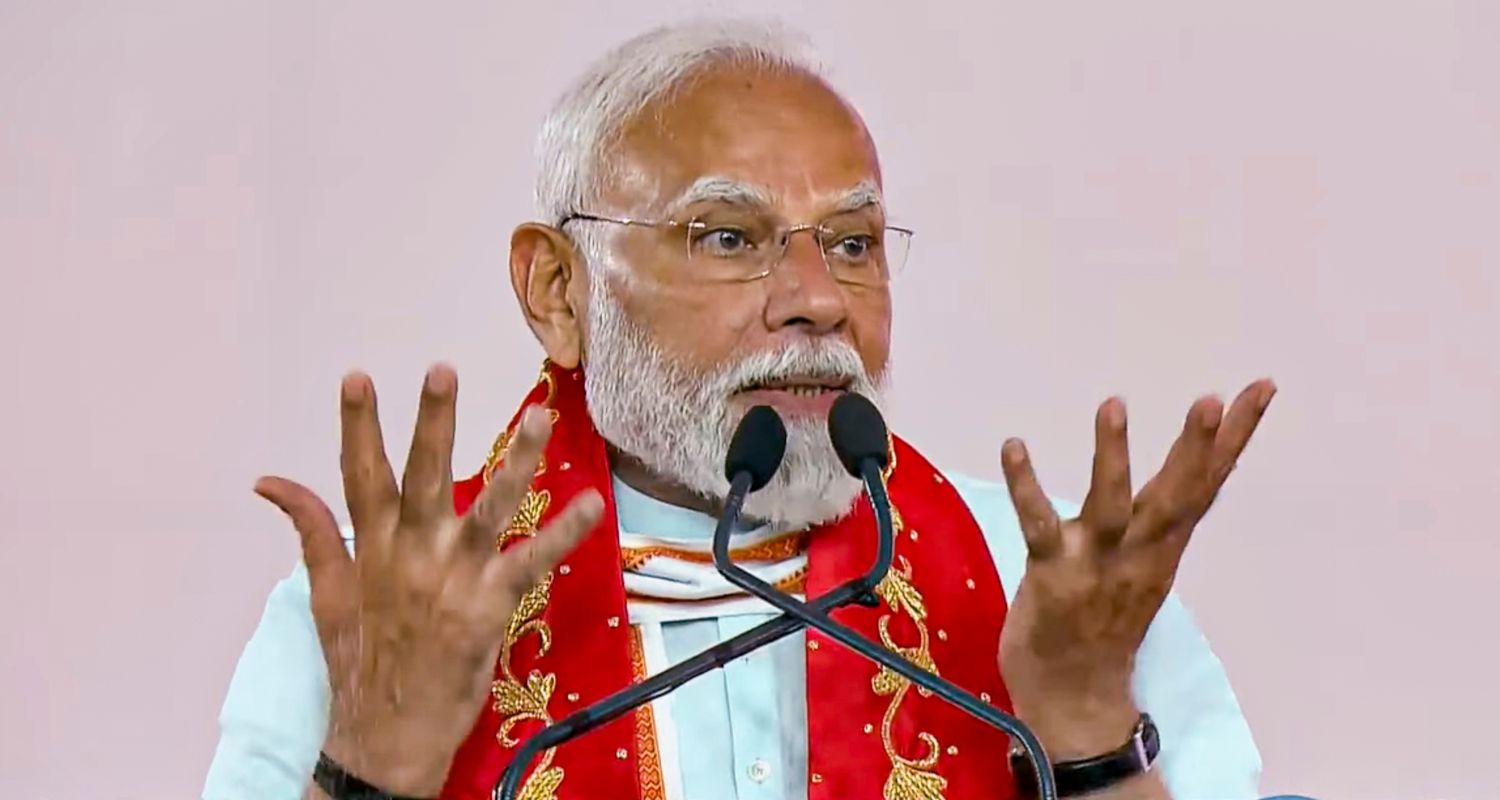In a significant development for South Asian cooperation, Indian Prime Minister Narendra Modi met with his Bhutanese counterpart, Tshering Tobgay, in Thimphu, Bhutan. The two leaders, hosted by Prime Minister Tobgay over a working lunch, engaged in productive discussions aimed at further solidifying the exceptional relationship between their nations.
 Their dialogue encompassed a broad spectrum of issues, reflecting the multifaceted nature of the India-Bhutan partnership. Key areas identified for enhanced collaboration included renewable energy, a critical sector for both countries’ sustainable development goals. Discussions also focused on bolstering cooperation in agriculture, fostering youth exchange programs to bridge cultural divides and nurture future leaders, and implementing joint initiatives in environmental protection and tourism, crucial sectors for Bhutan’s economic development.
Their dialogue encompassed a broad spectrum of issues, reflecting the multifaceted nature of the India-Bhutan partnership. Key areas identified for enhanced collaboration included renewable energy, a critical sector for both countries’ sustainable development goals. Discussions also focused on bolstering cooperation in agriculture, fostering youth exchange programs to bridge cultural divides and nurture future leaders, and implementing joint initiatives in environmental protection and tourism, crucial sectors for Bhutan’s economic development.
Underscoring the warmth and mutual trust that characterize India-Bhutan relations, Prime Minister Modi and Prime Minister Tobgay witnessed the signing of several Memoranda of Understanding (MoUs). These MoUs serve as concrete steps towards realizing the shared goals identified during the talks. Specific areas covered by the MoUs reportedly include establishing frameworks for cooperation in energy production and trade, facilitating digital connectivity to enhance communication and information exchange, and fostering collaboration in space exploration, a potential new frontier in their bilateral partnership. Additionally, the MoUs reportedly address collaboration in agricultural development, a vital sector for Bhutan’s food security, and youth engagement initiatives, which aim to strengthen cultural understanding and people-to-people ties between the two nations.
This high-level meeting and the signing of the MoUs signify a renewed commitment by India and Bhutan to work together for a more prosperous, secure, and sustainable future. By collaborating across a diverse range of sectors, the two countries can leverage their unique strengths and position themselves for mutual benefit in the ever-evolving global landscape.



